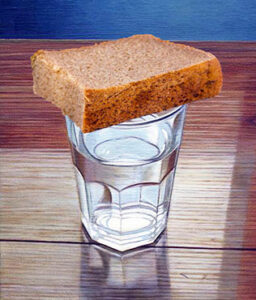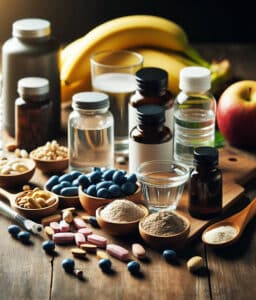Good or bad cholesterol?
So what exactly is cholesterol?
Cholesterol is a fat-like substance found in almost every tissue in the body. Cholesterol in the body is synthesized in the liver from fats, glucose, amino acids. Up to 2.5g of cholesterol is produced per day, about 0.5g is ingested with food.
Cholesterol provides stability to cell membranes. It is needed for the production of vitamin D, for the production of various hormones (including cortisol, aldosterone, sex hormones: estrogens, progesterone, testosterone).
As you can see, cholesterol is vital for the normal functioning of our body.
How did the myth of "bad" cholesterol come about?
Studies of atherosclerosis have shown that cholesterol is a major component of atherosclerotic plaques (deposits in the blood vessels that grow over time and narrow the arteries, making it harder or completely blocking the blood supply to the heart, brain, etc.) Doctors and scientists atherosclerosis (atherosclerotic plaque formation) was initially thought to be a simple deposition of cholesterol on the walls of arteries. That is, if a lot of cholesterol - a lot of sediment, a little cholesterol - a little sediment.
However, data that contradicted this theory appeared very soon. Some people with high cholesterol did not have plaque atherosclerosis, while others with low cholesterol died of cardiovascular disease at an early age.
The fact is that cholesterol is not an independent substance in our body. It is insoluble in water, but in order to travel with the blood, it binds to certain proteins to form protein-fat complexes called lipoproteins. There are two main types of lipoproteins: low density lipoproteins (LDL) and high density lipoproteins (HDL).
It is the protein in these complexes that determines the properties of these particles. In the case of HDL (good cholesterol), the cholesterol is taken from the cholesterol deposits in the blood vessels and sent to the liver for processing;
Cholesterol alone does not cause atherosclerosis. The development of atherosclerosis depends on the relationship between HDL and LDL in human blood. If the balance is shifted to HDL, the plates will not form and vice versa.
Cholesterol also enters our body through food (fatty meats, fatty dairy products, seafood, egg yolks…), but its total blood levels are not directly related to the amount of cholesterol ingested. For example, people in India, Sri Lanka and Pakistan have the highest blood cholesterol levels, although they have the highest proportion of vegetarians (not all plant foods contain cholesterol).
Your HDL and LDL levels depend mainly on your genetics. However, lifestyle, proper nutrition and regular physical activity change the LDL / HDL ratio in the right direction. There is no need to restrict cholesterol-containing foods. It is true that many cholesterol-containing foods change the ratio of lipoproteins to LDL (eg excessive consumption of red meat), but consuming too much sweetness (often cholesterol-free at all) can increase LDL cholesterol production.
What Really Affects Your Cholesterol Levels
Do not believe untested myths. Don't be afraid of cholesterol in foods, follow proper dietary recommendations, be physically active, monitor your weight, check your HDL and LDL levels regularly, monitor your cardiovascular condition and be healthy.
HDL - good cholesterol increases:
- Unsaturated fatty acids (olive oil, fish oil, linseed oil, nuts);
- Regular physical activity (10,000 steps of walking per day, swimming, running, cardio, dancing, etc. - a total of at least 300 minutes per week);
- Low doses of alcohol;
- Fiber (fruits, vegetables and whole grains).
LDL - increases bad cholesterol:
- Foods high in saturated fat (red meat, sausages, hard cheeses, bacon, flour confectionery, cakes, cookies and cream);
- Sedentary lifestyle;
- Overweight;
- Hydrogenated vegetable fats (margarine, semi-finished products, Fast-food).
In addition to reading
Your cholesterol level doesn't matter or the myth of "good" and "bad" cholesterol is not true
Share this article
Follow me on Facebook
I recommend reading these articles as well

9 main mistakes in slimming
A lot of us have lost weight at least once in our lives, at least we have tried to lose weight. Who has succeeded, many do not - what are the main mistakes in weight loss and why does the lost weight return?

How to lose weight fast and forever
You can lose weight quickly, which, after the so-called "fast" diets, also returns quickly and usually with a surge. Lose weight quickly with the understanding - it is not possible to lose weight by reducing body fat %…

Physical activity for a healthy weight
Why is regular physical activity important? How does it affect my weight and well-being? How much physical activity do I need?

Multivitamins - do we need them?
Do multivitamins really help improve health, or are they just a waste of money?

